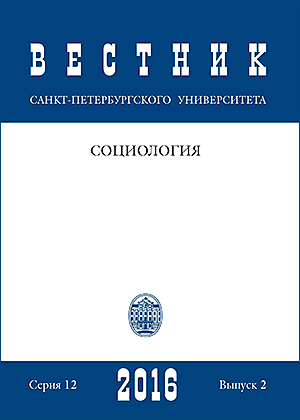MINI-DEBATES AS A METHOD OF INTERACTIVE EDUCATION
DOI:
https://doi.org/10.21638/11701/spbu12.2016.208Abstract
The article proves methodic efficiency of debate as one of interactive methods for contemporary education in higher education. It is shown in the article that discussion as a cognitive and argument method integrates techniques of such interactive education methods as case study, collective solution of creative tasks, heuristic conversation, and brainstorming. Mini-debate is represented in the article as one of the varieties of this method. Mini-debate is determined in the article as a dispute on a specific and problemmatic situation, (this situation was constructed by the teacher or appeared during the discussion). Mini-debate supposes the formulation of an alternative point of view and concludes with arriving at a group decision. The article shows specific traits of mini-debate preparation and procedure, in particular, the special role of mediator (the teacher). The teacher ought to describe the essence of the problem situation, on the basis of its actuality, perspectives for sociological knowledge development, practical significance and others. Then the mediator suggests alternative points of view for students and fi nds advocates of each opinion. During the mini-debate the teacher supports and develops students’ argumentation for each point of view. And finally the moderator summarises and formulates problem solution worked out in group. On this basis of these structural components, the stages of a mini-debate and its methodological advantages are described. The article shows that such a form of debate as the mini-debate is especially effective during conversations on the subjects being studied in the lesson. It helps to identify problem situations in the topic of the seminar and relates the discussion topic with other more general topics of this course. This method activates students attention, mobilizes their own social experience, and stimulates the creative part of the education process. And finally it helps to work out and fix the discussion algorithm, which is very important for different professional practices. Refs 8.
Keywords:
interactive education, mini-debate method, methodological advantages, problem situation, alternative points of view
Downloads
References
References
Downloads
Published
How to Cite
Issue
Section
License
Articles of "Vestnik of Saint Petersburg University. Sociology" are open access distributed under the terms of the License Agreement with Saint Petersburg State University, which permits to the authors unrestricted distribution and self-archiving free of charge.




